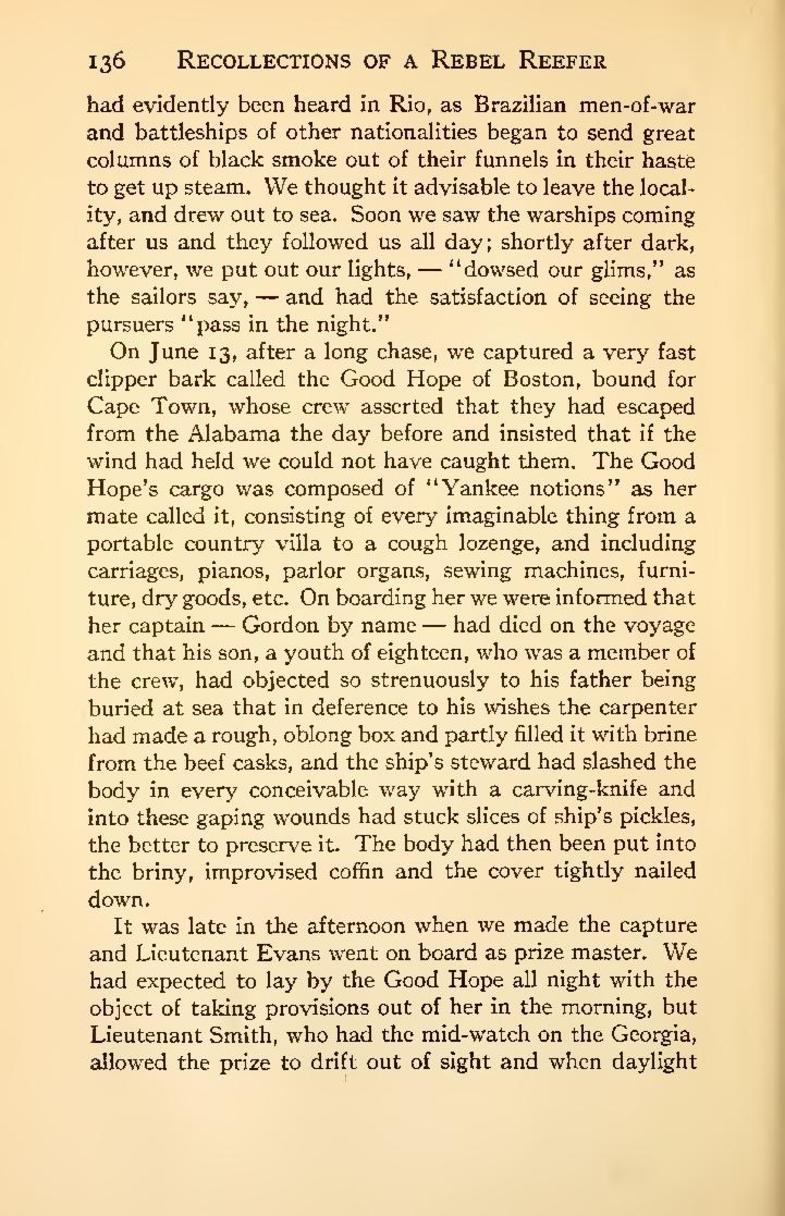had evidently been heard in Rio, as Brazilian men-of-war and battleships of other nationalities began to send great columns of black smoke out of their funnels in their haste to get up steam. We thought it advisable to leave the locality, and drew out to sea. Soon we saw the warships coming after us and they followed us all day; shortly after dark, however, we put out our lights,—"dowsed our glims," as the sailors say,—and had the satisfaction of seeing the pursuers "pass in the night."
On June 13, after a long chase we captured a very fast clipper bark called the Good Hope of Boston, bound for Cape Town, whose crew asserted that they had escaped from the Alabama the day before and insisted that if the wind had held we could not have caught them. The Good Hope's cargo was composed of "Yankee notions" as her mate called it, consisting of every imaginable thing from a portable country villa to a cough lozenge, and including carriages, pianos, parlor organs, sewing machines, furniture, dry goods, etc. On boarding her we were informed that had died on the voyage—Gordon by name—her captain and that his son, a youth of eighteen, who was a member of the crew, had objected so strenuously to his father being buried at sea that in deference to his wishes the carpenter had made a rough, oblong box and partly filled it with brine from the beef casks, and the ship's steward had slashed the body in every conceivable way with a carving-knife and into these gaping wounds had stuck slices of ship's pickles, the better to preserve it. The body had then been put into the briny, improvised coffin and the cover tightly nailed down. It was late in the afternoon when we made the capture and Lieutenant Evans went on board as prize master. We had expected to lay by the Good Hope all night with the object of taking provisions out of her in the morning, but Lieutenant Smith, who had the mid-watch on the Georgia, allowed the prize to drift out of sight and when daylight
